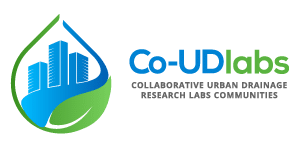UDC and UDFJC finalise their TA at the BLOCK facility
On April 25, 2023, Co-UDlabs partners at the University of A Coruña (UDC, Spain) finalised the second Transnational Access at their installations. Visiting researchers from the Universidad Distrital Francisco José de Caldas (Bogotá, Colombia) worked for over three months — from mid-January to the end of April 2023 — at the BLOCK facility at UDC’s Centre for Technological Innovation in Construction and Civil Engineering (CITEEC).
BLOCK is a scientific platform for urban run-off tests, with a 100m2 rainfall simulator at three different intensities (30, 50 and 80 mm/h), four gully-pots and a channel for the collection of run-off downstream, four manholes, two surface run-off generators located upstream of the intersection, and a drainage system consisting of transparent plastic pipes, among several other features.
Prof. Carlos Zafra Mejía and pre-doc researcher David Hernández Medina stayed at BLOCK to perform TA project, Methodology to determine the potential heavy metal loads washed-off by stormwater runoff from road-deposited sediments. Washing of road-deposited sediments (RDSs) from surface run-off is a common problem in urban areas. It can very negatively affect the environment, infrastructure, and residents’ quality of life. Total suspended solids (TSS) concentrations are often used as indicators in the study of RDS transport by run-off. Accordingly, physical modelling of laboratory-scale TSS washing is an important tool for optimizing existing management and treatment techniques to minimize the impact of RDSs and associated pollutants.
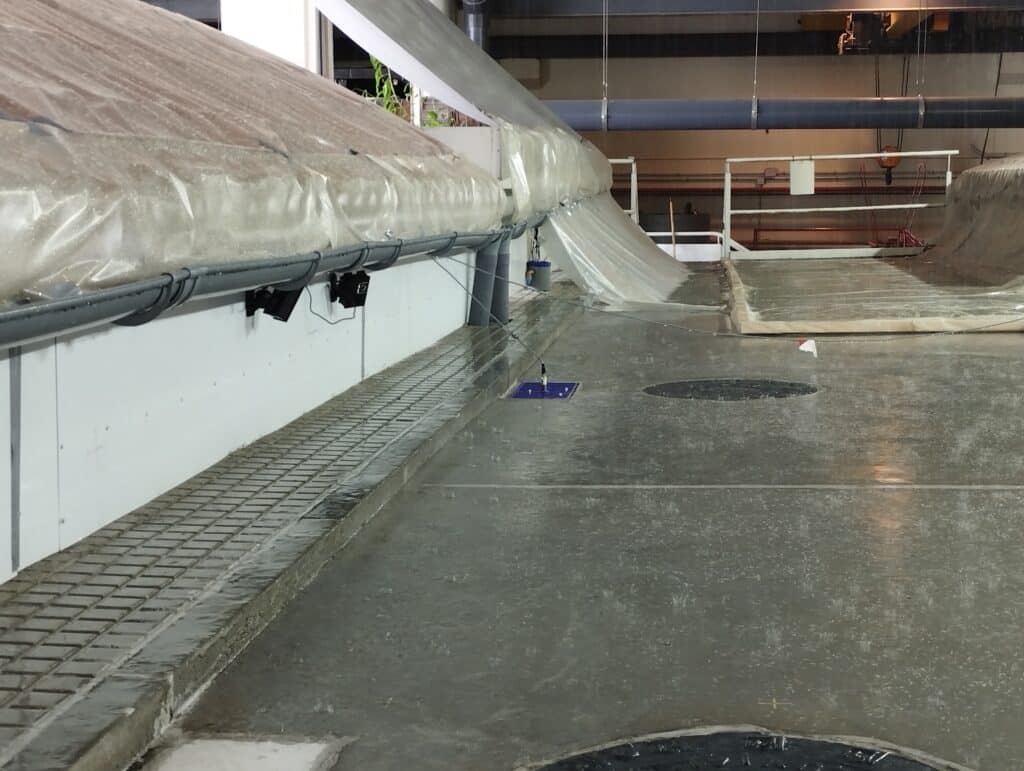
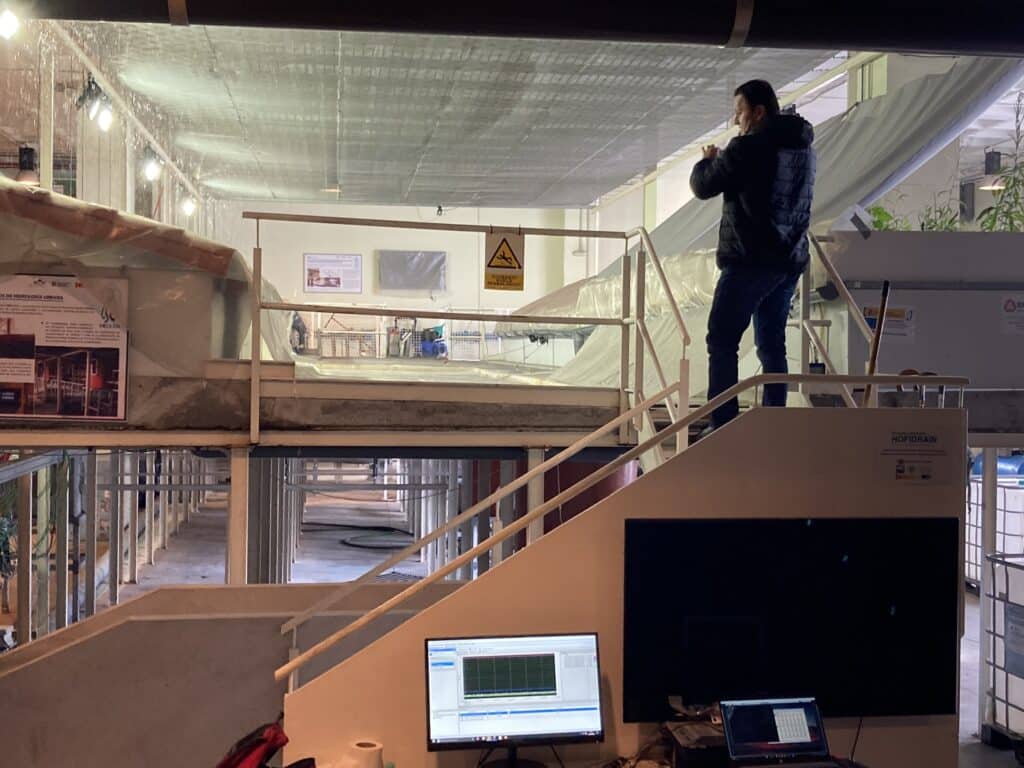
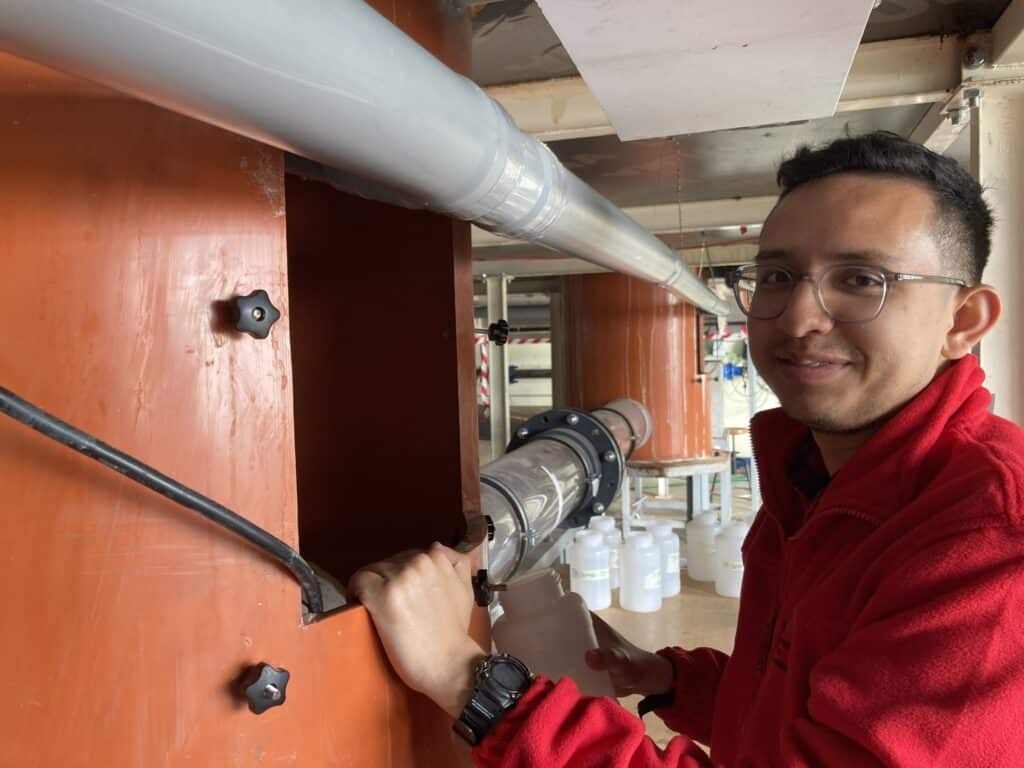
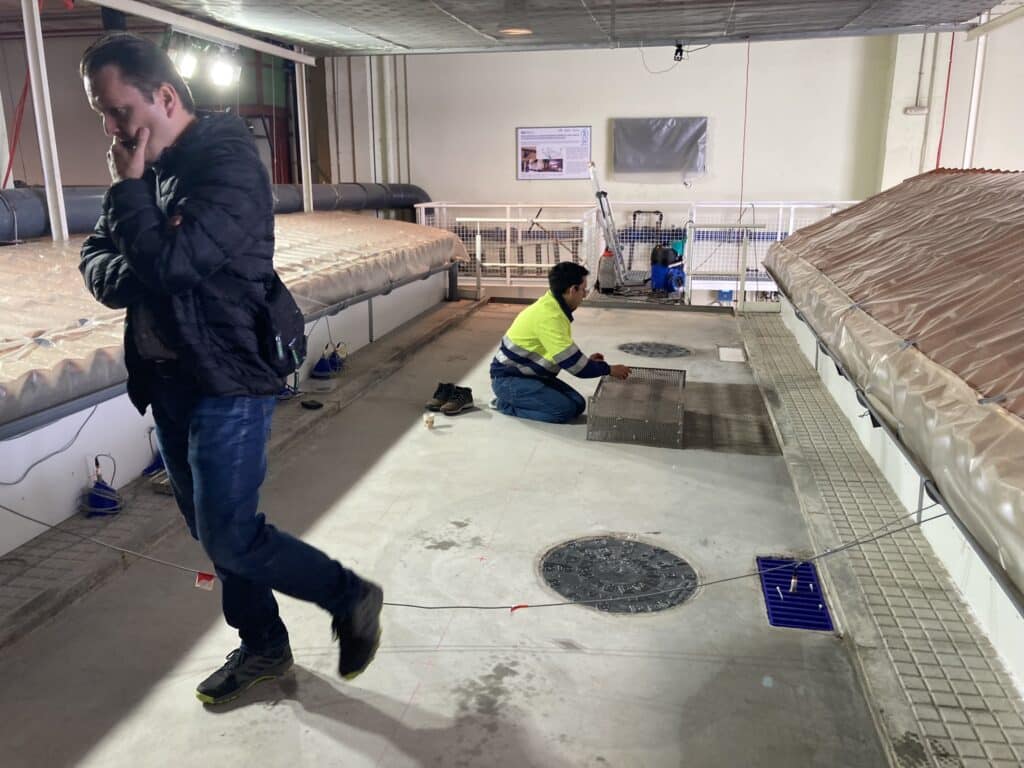
Heavy metals are some of the pollutants linked to public and environmental health problems at a global and local level in urban environments. Research conducted within the BLOCK TA analysed potential HM load washed-off in rainfall events from urban RDSs. The project built on an experimental campaign with different pollutant loads over the surface of the BLOCK model. It managed to accurately measure the transport of RDSs and HMs through the different elements of the BLOCK installation (surface and gully pots) at different rainfall intensities and durations. Co-UDlabs will use novel data generated via the project to test performance and validate new and existing formulations considering RDS wash-off and the transport and leaching of HMs in the form of both solid and dissolved fractions.
Even after the finalisation of the access, teams at UDC and the Universidad Distrital will be working closely on preliminary outcomes and results of the experiment. The group aims at presenting results at international conferences as early as in 2024 (including a potential contribution to Co-UDlabs-led events at the next ICUD in June 2024), as well as developing several publications and open-access datasets based on the outcomes of their work at BLOCK.
